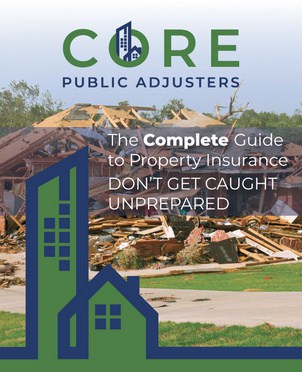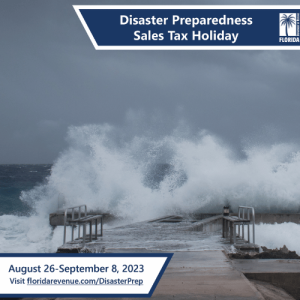Owning a home in Florida has its fair share of advantages and disadvantages. One of the biggest issues that homeowners in Florida face is the state of homeowner’s insurance in the region. After the massive hurricanes that hit Florida in 2004 and 2005 and again in the last few years, many insurers scaled back coverage in the state.[1]
This resulted in fewer options for the Floridian homeowner. In fact today, homeowners in Florida “… with $300,000 to $399,999 in coverage pay an average of $2,350, compared to the national average of $1,252 for the same amount of insurance, according to the National Association of Insurance Commissioners.”[2]
Needless to say, Florida presents some unique challenges for the homeowner. Despite this, when damage to your home occurs, your first instinct might be to claim immediately. But there are certain scenarios where you might need to hold off claiming against your policy until you speak with a professional.
When is it worth making a claim?
According to the Insurance Information Institute, about 1 in 20 insured homes had a claim filed each year between the years 2014-2018.[3] Claiming against homeowner’s insurance is very common, but you’ll need to weigh the benefits versus the costs in your situation before you claim. Homeowners are often worried about getting dropped from their insurer after making a claim. Unfortunately, in today’s insurance environment, this could happen to unsuspecting homeowners who have never even made a claim.[4] Therefore, if you have a legitimate insurance claim, read on to see how to best navigate it.
Making a claim against your homeowner’s policy is serious business. This is not to discourage you from making an insurance claim, but rather to encourage you to contact us for professional guidance.
Filing a claim can be worthwhile if the below scenarios apply to you.
When the damage is covered by the policy, filing a claim may be worthwhile to you.
This is probably the first indicator of whether you should file a claim. If the damage you suffer is not covered under your policy, there is no point trying to file a claim for it. Your insurer is unlikely to budge on this because the policy you are paying for indicates what they will cover and what they won’t cover. There are some cases in which it may not be clear whether the damage is covered or not. Seek professional assistance.
There are certain perils that your policy will cover. Your insurer will not reward negligence on your part. So pay close attention to what your policy coverage entails. If you are unsure, you can hire a public adjuster who will look over your policy and give you advice on how to proceed.
When you haven’t filed a claim in several years, filing a claim may be worthwhile to you.
Insurers have a specific report that they look at. A Comprehensive Loss Underwriting Exchange (CLUE) report provides a seven year history of your property insurance claims for vehicles, rentals and homes.[5] The report includes information concerning the claims that you have made that were denied or paid out, as well as potential claims that you inquired about.[6]
When you suffer an extensive loss of damage, filing a claim may be worthwhile to you.
Insurance can cover smaller incidences that involve theft, loss or damage to your gadgets, personal clothing, household appliances and bank cards.
Your T.V. might be insured but it may not be wise to use your homeowner’s insurance to replace a broken or stolen T.V. Consider reserving your claim for the bigger things, especially if you own a home in Florida.
Maxing out your claims on the small things when you are likely to experience hurricanes or tropical storms is not a good idea. If your home is in shambles after a catastrophic event, it probably makes sense to file a claim if the value is bigger than your deductible. When in doubt, contact CORE Public Adjusters for advice.
When is it questionable to file a claim?
Your situation might tick all the boxes that allow you to file a claim. But even if you think you should file a claim, it’s best to take a moment and thoroughly assess your options. You might find that filing could end up costing you more than what you initially thought.
When the claim will be less than your deductibles, you may want to seek expert advice on making a claim.
A deductible is the amount of money that you need to pay using your own funds before the insurer can pay their part of the claim. It is listed in your policy and your insurer is only responsible for the balance left after your deductible.
If the damage will cost less than the amount of your deductible, then filing a claim becomes redundant because your insurer will have nothing to pay off. For example, if your deductible is $1000 and your damage costs $800 to repair, filing a claim won’t be worth it as there will be nothing left for the insurer to pay.
When you can replace or repair the damage yourself, you may want to seek expert advice on making a claim.
Generally, it’s not worth making a claim on homeowner’s insurance in Florida when the damage is less than your deductible as we previously mentioned. It’s also not worth it when you can repair or replace the items yourself. You might lose benefits such as discounted premiums that are given when you have been claim free for at least three years. However, most of us are neither licensed repair contractors nor home repair experts. Contact us to learn how we can help if this situation applies to you.
A good rule of thumb is to save your home insurance claim for the bigger things. Although, sometimes we are unaware of additional damage lurking behind walls or underneath flooring. A small water line leak from a washing machine or dishwasher could be a much bigger issue than what meets the eye. When in doubt we encourage you to contact CORE Public Adjusters for advice.
Why should you call CORE Public Adjusters if you’re in Florida?
As we have stated before, Florida presents a very unique and challenging environment for homeowners. With most of the insurance companies in the state facing financial issues[7], claiming on your home insurance can quickly turn into a nightmare for you.
CORE Public Adjusters helps you:
- Manage every part of your claim
- Assess the damage and determine the cost
- Negotiate for a better payout from your insurer
If you’re still uncertain, read more about what you should do when filing a property damage claim or how CORE Public Adjusters helps clients file insurance claims.
References
[1] Forbes Advisor https://www.forbes.com/advisor/homeowners-insurance/why-is-homeowners-insurance-in-florida-such-a-disaster/
[2] Forbes Advisor https://www.forbes.com/advisor/homeowners-insurance/why-is-homeowners-insurance-in-florida-such-a-disaster/
[3] Insurance Information Institute https://www.iii.org/fact-statistic/facts-statistics-homeowners-and-renters-insurance
[4] Insurance News https://insurancenewsnet.com/oarticle/get-ready-to-dig-deeper-despite-reforms-insurers-warn-consumers-that-more-rate-hikes-are-coming-south-florida-sun-sentinel-2
[5] Forbes Advisor https://www.forbes.com/advisor/homeowners-insurance/clue-report/
[6] Kin https://www.kin.com/faq/insurance-claims-history
[7] Insurance News https://insurancenewsnet.com/oarticle/get-ready-to-dig-deeper-despite-reforms-insurers-warn-consumers-that-more-rate-hikes-are-coming-south-florida-sun-sentinel-2







